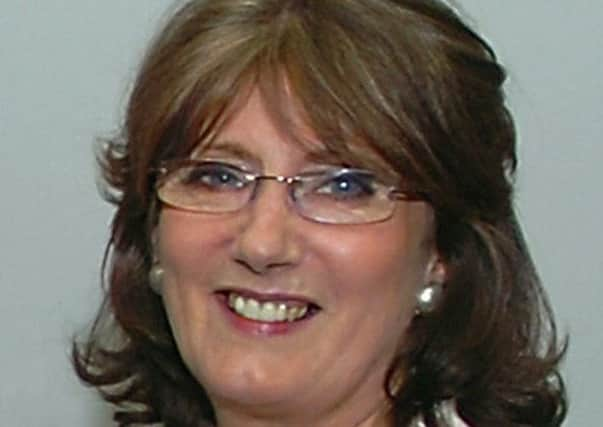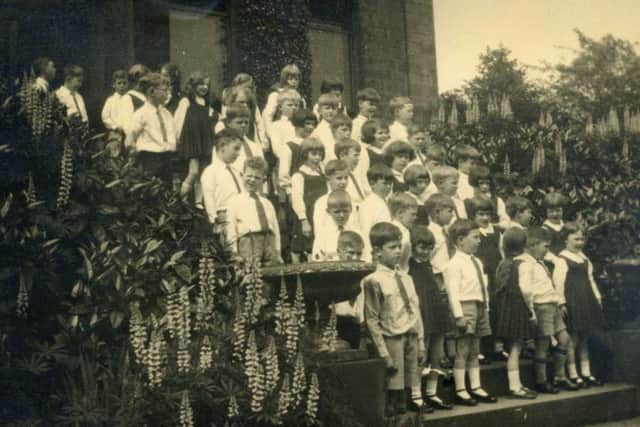The Nostalgia column with Margaret Watson


Two such benefactors, whose bequests made a huge difference to the lives of thousands of Dewsbury children, were John Wheelwright and Matthew Hinchcliffe.
John was a wealthy landowner, who died in 1742, and Matthew, a Dewsbury doctor, who died in 1897, both of whom left their entire estates to be spent on educating the young of Dewsbury.
Advertisement
Hide AdAdvertisement
Hide AdThe money came in both land and investments which today would be worth millions and, fortunately, they still are because of wise investments by trustees.


Dewsbury Corporation eventually became trustees of both charities which had been set up in the names John and Matthew.
Both men were specific in at least one condition of their wills – that the children to benefit had to live in the borough of Dewsbury.
They also stipulated that only the annual interest from the investments should be used to ensure the money would continue into perpetuity.
Advertisement
Hide AdAdvertisement
Hide AdTwo schools were built from its proceeds – Wheelwright Grammar School, named after John, and Dewsbury Technical School.
Although the grammar school no longer exists in its original form, the building itself does, as does the Technical School, which is still in use.
Dr Hinchcliffe, left nearly £50,000, a great sum in those days, to be used for the further education of children, both boys and girls, aged from 13 to 25.
This was during a time when children had to pay school fees which meant few poor children got any education at all, and those who did were forced to leave at an early age to become wage earners.
Advertisement
Hide AdAdvertisement
Hide AdMatthew’s family were not wealthy, but neither were they poor, his father being the licensee of a public house in Daisy Hill with the family living in rooms above.
But they still would have had to make some sacrifices to ensure their son got the best education possible which would allow him to stay on at school and go on to university to train to be a doctor.
Dr Hinchcliffe lived at various places in Dewsbury, in Daisy Hill, Wellington Road and finally in Neasby House on the Eightlands where he spent his last years, being cared for by his housekeeper, to whom he left an annuity.
One can assume that in his daily work as a doctor he would have visited poor homes and seen bright, intelligent boys and girls being prevented from staying on at school to fulfil their potential.
Advertisement
Hide AdAdvertisement
Hide AdIt seems he had a deep sense of public duty and served on various charities and also becoming a councillor and alderman on the old Dewsbury Borough Council.
He was also a Justice of the Peace and highly respected in the local community by rich and poor whom he served conscientiously.
He chose Dewsbury Corporation to be the trustees of his bequest, and below is the relevant part showing how he wished it to be administered:
“The annual proceeds to be paid and used annually forever for the promotion and furtherance of high class education among the young of both sexes above the age of 13 years and being resident in the borough and having attended elementary schools for not less than three years.”
Advertisement
Hide AdAdvertisement
Hide AdSo keen were members of the Dewsbury Corporation to see the contents of his will that they hastened to his home following his burial to hear it read by his solicitor.
The council was later to make various investments from the bequest in buying houses, usually in the best residential areas of Dewsbury, to be rented out or later sold.
The first was the purchase of the Marlborough Estate in Halifax Road, a terrace of beautiful Victorian houses, for which they paid £8,625.
One of them became used as the kindergarten class for Wheelwright Grammar School, later to become Marlborough School, which was a private one.
Advertisement
Hide AdAdvertisement
Hide AdThe John Wheelwright and Matthew Hinchcliffe charities were eventually merged with other charities to become the Dewsbury School Endowed Trust Foundation, which still operates today.
John Wheelwright, like Dr Hinchcliffe, was a bachelor with no dependants, and although a considerable landowner of great wealth, he was a man of frugal habits with deep religious conviction.
Although little is known about his life, we know he was born in Gawthorpe, which at that time was situated within the ancient borough of the parish of Dewsbury.
The terms of his will were not as straightforward as Dr Hinchcliffe’s, perhaps because a greater part of his bequest related to children of his tenants on his Rishworth estate near Halifax, as well as those from Dewsbury.
Advertisement
Hide AdAdvertisement
Hide AdAlso, he wanted his bequest to be spent on educating poor children, and not children from all classes, as Dr Hinchcliffe had instructed.
This was to be a bone of contention for years to come with public meetings being held in Dewsbury as to who should benefit from the wills and who should not.
I hope to write more about this in future columns and also about other benefactors who left money for the education of Dewsbury children.
In the meantime I would recommend you read a book entitled “The History of Wheelwright Grammar School” written by former pupil Walter Pickles.
Advertisement
Hide AdAdvertisement
Hide AdThis thoroughly researched book gives more space to John Wheelwright’s will and how it was administered, than I ever could, and to history lovers it makes fascinating reading.
○ Turn to page to page 12 to read about Dewsbury Schools Endowed Trust Foundation’s grants to schools in the town.
Email [email protected] with your stories.